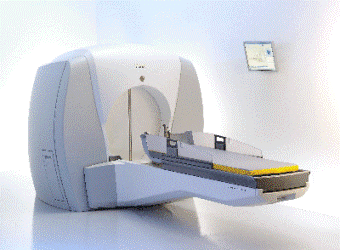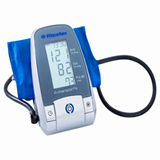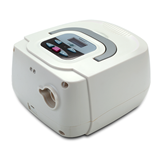For certain types of tumours and neurological disorders, the Gamma Knife provides better outcomes for patients with fewer complications in a same day treatment with a lower total treatment cost compared to more traditional invasive neurosurgery techniques.
Consistent with Macquarie University Hospital's approach to medicine and improving care for patients, Gamma Knife treatment is delivered by a team of leading neurosurgeons, radiation oncologists, medical physicists and nurses using the best technology available. Genesis Cancer Care is delivering the Gamma Knife service on behalf of Macquarie University Hospital.
The Gamma Knife is a non-invasive neurosurgical tool for treating brain cancer and a range of other brain-related disorders. Despite its name, it is not a cutting implement and there is no blood or incision involved in treatment. Instead, some 200 radiation beams from cobalt-60 sources converge with high accuracy on the target inside the brain. Each individual beam has low intensity and therefore does not affect the tissue through which it passes on its way to the target. The beams converge in an isocentre where the cumulative radiation intensity becomes extremely high.
Neurosurgeon Dr John Fuller, who treated the first patient in Australia with the device, said Gamma Knife treatment is very different to traditional neurosurgery.
"Although our first patient had tumours in multiple parts of his brain, we only needed to do one operation lasting an hour or so, no scalpel was used, the patient was awake throughout the entire procedure and only received a local anaesthetic, and he went home last night having been treated in an out-patient setting."
Dr Fuller said the low impact nature of the treatment on the patient has a range of flow-on benefits for their families, the medical treatment team and the wider healthcare system.
"Patients who receive Gamma Knife treatment have fewer complications than traditional neurosurgery patients undergoing a craniotomy reducing the need for hospitalisation and intensive care," he said.
"For patients the Gamma Knife equates to fewer treatment sessions, shorter hospital stays and less physical, mental and emotional strain. Additionally, it reduces the overall burden on the healthcare system."
One published international study shows that one Gamma Knife system can free up to 700 ICU (intensive care unit) beds per year.
Some of the conditions that can be treated with the Gamma Knife include arteriovenous malformations (AVMs), abnormal arteries and veins which in most cases form prior to birth; acoustic neuromas, benign tumours of the eighth cranial nerve; trigeminal neuralgia, a condition that affects one of the largest nerves in the head and is associated with sharp, piercing pain in the face; and other brain tumours such as, meningiomas, pituitary adenomas, and skull base tumours, as well as glioblastoma multiforme, ogliodendroglioma, astrocytomas in certain cases.
Overseas peer-reviewed studies report that Gamma Knife treatment has resulted in tumour control (elimination of further growth, tumour shrinkage or obliteration) in about 90 percent of cases.
The device's versatility is borne out by the fact that the first four patients scheduled for Gamma Knife treatment this week will each be treated for different conditions.
However, the Gamma Knife is most well-known as the preferred type of treatment globally for brain metastases, which develop in 20-40% of all cancer patients. Brain metastases are cancer that has spread (metastasised) to the brain from another site in the body, commonly the lung or breast. Around 300,000 Gamma Knife treatments will occur worldwide this year, mostly to treat patients with brain metastases.
Professor Michael Morgan, a world-renowned neurosurgeon and Dean of the Australian School of Advanced Medicine at Macquarie University said that the Gamma Knife can improve outcomes for these seriously ill patients.
"Now with the Gamma Knife we can offer treatment and along with that hope that the patient's life may not only be extended, but also that their remaining time will involve a much better quality of life," he said.













